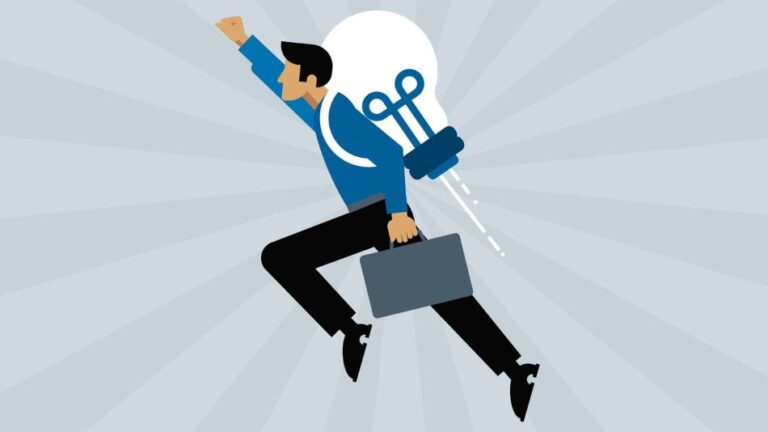Avocado (persea americana) is one of the few fruits that are high in fat and low in sugar, said Dr. Donald Hensrud, medical director of the Mayo Clinic Healthy Living Program in Rochester, Minnesota, and a specialist in nutrition and preventive medicine.
“Along with the nuts, olive oil and canola oil, the fat content in avocados are predominantly monounsaturated fat, which is responsible for many health benefits,” he added.
The name avocado is thought to come from the Aztec word ‘ahuacati’, which means testicle, according to Merriam-Webster dictionary. The name presumably is tied to the shape of the fruit.
Studies have shown that vitamin E can reduce the damage caused by excessive sun exposure and the effects of UVA and UVB radiation on skin cells.
As crude oil is known as the ‘black gold’ due to is money-spinning nature, it would not out of place to describe avocado as the ‘green gold’ waiting to be explored. It needs to be celebrated by Africans that have the precious plant in abundance.
The pharmacologically active constituents of avocados are not only nutritionally valuable, experts assert, but they also possess anti-fungal, anti-inflammatory and antioxidant activity in some studies. They help lower the LDL (low-density lipoprotein), sometimes called ‘bad’ cholesterol,and help prevent cardiovascular disease and even cancer. Hence, everyday consumption is recommended.
Elizabeth Johnson, lead investigator of the study conducted at Tufts University, suggested that eating a whole fresh avocado everyday could lead to better brain and eye function in healthy, older adults, as monounsaturated fats, fibre, lutein and other bio–actives make avocados particularly effective at enriching neural lutein levels.
According to new research published in the journal, Nutrients, consuming one fresh avocado per day may lead to improved cognitive function in healthy adults due to increased lutein level in the brain and eye.
Lutein is a carotenoid or pigment, commonly found in fruits and vegetables, which accumulatesin the blood, eye and brain. It may act as an anti-inflammatory agent and antioxidant.
Avocado, commonly known as pear in some countries, including Nigeria, is in season again. Like other fruits, it is enjoyed alone or with other foods. However, it should also be noted as an effective beauty ingredient because of its ‘good fat’ content, which is an ingredient of beauty treatment. It is an age-defying fruit.
Avocados are rich in antioxidants, vitamins and fatty acids that can enhance the skin from the inside. The fruit can be used on the face for deep moisturisation and regeneration. Good levels of carotenoids in the diet have been reported in research studies to increase the skin’s density and thickness, as well as improved the tone and appearance.
“Looking good is good business. Most people would not mind spending a fortune on artificial products trying to look good without obvious and effective results, when nature has offered a more affordable and effective way to beauty,” said a dermatologist who preferred anonymity.
The avocado has long been known for its positive effect on the human body, and its healthful properties have made avocado face masks more popular in the last few years.
Why are avocados so popular? Overall, getting an avocado mask has a number of benefits when it comes to fighting ageing, dry skin, dull skin, and a number of other skin problems. When it comes to skin care, the benefits of avocado face mask are believed to come from its anti-oxidant and moisturising properties.
Avocado is emerging as the new ‘green gold’ of Africa, replacing cocoa, coffee and other cash crops, the hitherto leading export items.
Commonly referred to as the African pear, the avocado has the potential for fostering Nigeria’s industrial growth via foreign exchange. In other countries, there are other species like the Hass, Fuerte, Zutano, Bacon, Reed and Pinkerton.
Despite its popularity and increased consciousness of its health and beauty benefits, avocado has remained largely underdeveloped in Nigeria.Government has planned to boost agricultural production through improved funding to enhance productivity, market linkages and access to e-extension technology programme, accommodating known commodities such as cocoa, rice and maize, with little or no emphasis on underutilised industrial plant species such as avocado which contribute to the economic development of several countries. This is despite avocado availability and its wide distribution in the country.
According to a report published by World’s Top Exports, Kenya has unseated South Africa as Africa’s top exporter of avocado and has also made it into the top 10 exporters in the world raking in some $78 million in 2017.
Currently, avocado has not been produced for industrial purposes in Nigeria. The best use israther for household consumption or sale at local markets.
It is predominantly grown in the southern and central parts of the country, including Ondo, Imo, Abia, Anambra, Enugu, Ebonyi, Edo, Akwa Ibom, Delta, Cross River, Osun and Oyo states, whichhave about 10 per cent of natural vegetation.
If properly harnessed, avocado’s industrial potential can contribute immensely to Nigeria’s economic growth through export.
Research shows that shipping of fresh avocados to the European markets doubled from 2012 to 2018. This trend is as a result of the increased health consciousness of the consumers. With the increased demand for the Hass variety, Nigeria stands a chance of becoming an exporter like Kenya and South Africa.
The consumption of avocados increases by threeper cent yearly.
After the United States, The Netherlands is the biggest importer of this fruit. Avocados consumed in Western countries are imported from Africa.
The growing demand for this cash crop, therefore,offers opportunities to those in the agriculturesector, but only when they are have good working conditions.
Europe imports avocado from Peru, Chile, Mexico, South Africa and Kenya. The competition for the European market is fierce, but industry experts expect a shortfall in supply in the near future, as countries in Asia (China and Japan) and the Middle East would begin to demand the product. This provides an opportunity for Nigeria to become an exporter of avocado.
Investigations revealed that Kenya produces 200,000 metric tonnes (MT) of the fruit yearly, yet exports 16,000MT.
Israel, on the other hand, produces 100,000MT of the fruit but exports 60 per cent and South Africa exports more than half of its annual production of around 125,000MT to Europe.
Meanwhile, Kenyan avocado export has increased by 10 per cent yearly for the last few years. Its export to the European market doubled between 2012 and 2017.
In Nigeria, there is a lot more to avocado that we think. But there is a lot more to avocado.
The government needs to design policies that would support a national commercialisation programme, stimulate the agri-business side of the avocado industry as Kenya did through its investment sector (AFFP, 2016) and evaluate the value chain.
With the above, we would have created job opportunities for the youths in the avocado farms, nurseries and pack houses.
The value chain, including input suppliers such as fertilisers, implements and various other service industries would also benefit.
It is important for stakeholders to understand the difference between agri-business and agriculture. With growing demand locally and globally, focused technical research on the best agronomy procedure, production standards and the continued adoption of the latest production technology, improved export policies and regulations, the industry would generate good revenue and keep growing from strength to strength.
Avocado farming is a very interesting butchallenging process. But real agropreneurs can ride on it to fortune.












